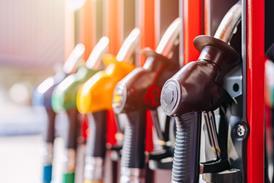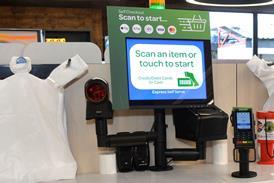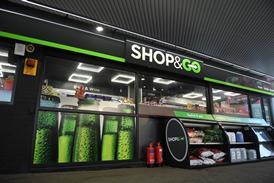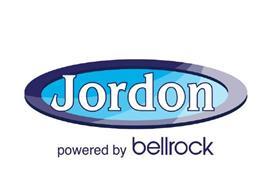Money makes the man, money talks. And there is no doubt that it ticks a lot of boxes on the how-to-impress scale. Money, and banks by association, represents power.
It is probably how you measure your business as well your bottom line tells you whether you are a success or not. But it adds up in lots of ways, not just in what you pay for petrol and how much you sell it for.
There are lots of ’between the lines’ before you reach that bottom line so this feature will cover a banker’s view; being a bit of a banker yourself; moving money around; the cost of cards and the machines you use to process them on.
Would you credit it?
Every time this feature rolls around there is a bit of a controversy going on. This time it was on the cards.
In mid-March the European Parliament voted to cap ’interchange fees’ the fee card firms charge retailers when credit and debit cards are used in stores. The Association of Convenience Stores (ACS) has welcomed it but the PRA has sounded a note of caution.
ACS said that it would "save the convenience sector millions and make the card charges that retailers face much more manageable".
PRA said it was a step in the right direction but added that the cap will only apply to the interchange element of the card charges and not the charges that the merchant pays the acquirer.
Gordon Balmer, commercial manager at the PRA, says: "We have some concerns that a move towards an ad-valorem (value-based) means of calculating debit card costs could, if average transaction values increase, end up costing the retailer more than the previous pence per transaction basis of calculation.
"In addition, the new methodology could also call into question the on-going viability of retailers providing ’cash back’ to their customers."
The details of the EU move have yet to be hammered out so watch out for an autumn statement.
Is cash still king?
ATM suppliers certainly think so and it is one way that you play at being a bit of a banker yourself.
Independent research shows that cash is used as the primary payment method in convenience stores and petrol stations, with three-quarters of shoppers choosing it over card payment. This is demonstrated in the The Value of Cash report, published by cash machine operator Cardtronics UK and independent research company Populus.
The report says that cash point users frequent their local petrol forecourt more than those who don’t use the cash machine, with 76% of users visiting at least once a week, compared with 67% of non-users.
Over half (58%) of customers who came to the forecourt to withdraw cash or check their balance via the cash machine said this was their main reason for visiting the forecourt, over and above purchasing petrol.
Cash machines generally boost in-store spending, with cash machine users, among all spenders, shown to have a higher average spend of £16.39. Those who didn’t use the cash machine spent on average £15.71.
It also leads to repeat visits, with 82% of cash machine users planning their shopping behaviour around the presence of a cash point. On top of this, 60% said they wouldn’t come back to the same forecourt if the cash machine was removed or faulty: equating to a loss of, on average, £11.49 per customer who said they wouldn’t return.
Planned visits
Overall, usage of other in-store services at petrol forecourts tends to be planned. A telling statistic in this context is that one in eight (13%) customers walked to their local forecourt to purchase goods and use in-store services.
Furthermore, over half of customers (52%) travelled a mile or under to the forecourt, highlighting the convenience role that forecourts play in the wider local community, not just for those looking to purchase fuel.
To this end, more than one in four customers said that the cash machine on-site at that particular forecourt was the one they always use.
Jonathan Simpson-Dent, managing director of Cardtronics Europe, says: "We’ve always been given anecdotal evidence to suggest that a cash point is able to offer forecourt managers and operators a boost to their business. But now for the first time, we’ve been able to prove and quantify it." Cardtronics supplies 14,000 ATMs, working with UK retailers, banks, service stations, food and beverage outlets and many other locations. Its presence in independent service stations and forecourts in the UK is particularly strong.
Our Top 50 Indies report shows that Cardtronics UK has existing relationships and contracts with 17 of the top 20 independent fuel operators. It operates a large part of its UK ATM estate under the brand name Cashzone. Cashzone fit, fill and fix cash machines. It offers a fully-managed CIT service as well as a self-fill alternative.
A number of additional services are available on Cashzone’s cash machines: free balance enquiries, mobile phone top-up and Ukash cardless cash access are just some of the ways the cash machines can really offer more to consumers.
The latest thing
But perhaps cashless suits you better? Ingenico Group’s speciality is delivering seamless and secure payments for forecourt traders.
Lee Jones, director of sales and business development, multi-channel services, says: "Forecourt traders want to combine very high levels of security with convenience when it comes to processing cashless payments.
"Customers want to pay quickly in this environment so it’s essential that retailers are offering the widest range of payment options. Contactless is booming in popularity and, from September this year, the limit will be raised from £20 to £30. Forecourt retailers need to make sure they’re prepared for these changes and ready to meet increasing customer demand for contactless.
"Ingenico Group supplies this market with the iPP350 a payment terminal which accepts every possible payment method including contactless and NFC to offer true convenience to shoppers. This compact PIN-pad terminal meets the PCI PTS V3 security standard and has been designed to meet the needs of this demanding retail environment."
Safe carriage
Now you have gathered your cash, you may be interested in a new cash collection service and online ordering portal. G4S Cash Solutions has launched its latest cash collection service, Cash45. Aimed at small and medium enterprises, the service provides a secure, less disruptive way to bank their daily takings, with all services ordered via a simple-to-use, online ordering and payment portal.
The new service is specifically designed for businesses with cash-taking levels in line with a maximum cash banking requirement of up to £4,500 in one transaction.
The service is booked using a simple online ordering portal: www.g4scashcollections.com. Customers can register and pick their most convenient service slot in a matter of minutes, and the user can then track and manage their services, all at the click of a button.
The company says the branding is subtle and discreet, designed to minimise attention and disruption to the customers’ premises with its sleek courier style appearance.
Duncan Faithfull, strategy and innovation director, says: "Our new Cash45 collection service is set to revolutionise the world of cash collections. We have listened carefully to the requirements of our customers and designed a new service with the needs of the smaller business in mind."
In the UK the company deploys more than 6,000 employees and utilises a fleet of around 2,000 vehicles throughout 34 cash transportation branches and five cash and coin centres.
A banker’s view
Mark Lodge, relationship director for Lloyds Bank Commercial Banking, has been exploring forecourt trend and growth opportunities. He says: "Having worked in the forecourt sector since the age of 16, some 30 years later I find myself financing a range of forecourt acquisitions and redevelopments, spanning from the Midlands down to as far as the South coast.
"From a macro perspective, the sector has remained active throughout all economic cycles, with a mix of ’commodity’ and ’convenience’ proving to be a useful antidote to one of the toughest sets of economic circumstances in my lifetime.
"The inevitable shift of the retail consumer to ’demand convenience’ offers a sustainable opportunity long term. Location-wise, there is little else that is more convenient than a forecourt, particularly one that offers good parking. So, while the core ’commodity’ product of fuel continues to form the proposition’s backbone, a convenience retail offering presents an opportunity to differentiate."
He points to a clear advantage that forecourts have. "It is no coincidence that, as many traditional high street retailers have continued to lose market share to their internet rivals, the forecourt offering has fared differently.
"I have yet to come across somebody buying fuel for their car from the comfort of their own home, or purchasing that sandwich and soft drink online for the drive to their afternoon meeting."
He adds that, while locations matter, management should never be overlooked.
"Rating management capability is another core part of what we do in our assessment of a business and its ability to perform and execute its chosen strategy. Yes, the numbers come into play and are vital, but the management team is just as crucial.
"So, if you thought that the days when lenders made decisions based on people were long gone, think again you might just be surprised. Maybe it’s time to give some thought to how well your financial partners understand both your business and your management team?"
In 2014, Lloyds Bank Commercial Banking grew its net lending to SMEs by 5% year-on-year (or over £1bn net) and has committed to grow lending to SMEs by £3bn (net) by the end of 2017.
Retailer view
"We operate 25 forecourts up and down the UK, and 20 of these have cash machines installed.
"We saw a real place for ATMs in the future of forecourts and have been rolling out installations in locations where we’ve seen the demand.
"We started installing cash points 12-13 years ago because we saw what was happening in the market with a need for increased diversification of services. It’s clearly what the customers want.
"Traditionally, petrol is the main attraction of a forecourt, but in some places people come just to use the cash machine, without getting petrol. I guess they’re in a hurry, but it shows the value of offering more than just one thing.
"Across the board, we tend to see a noticeable increase in footfall after installing the cash points. People aren’t necessarily buying more petrol, but they’re definitely spending more money in the shops."























No comments yet